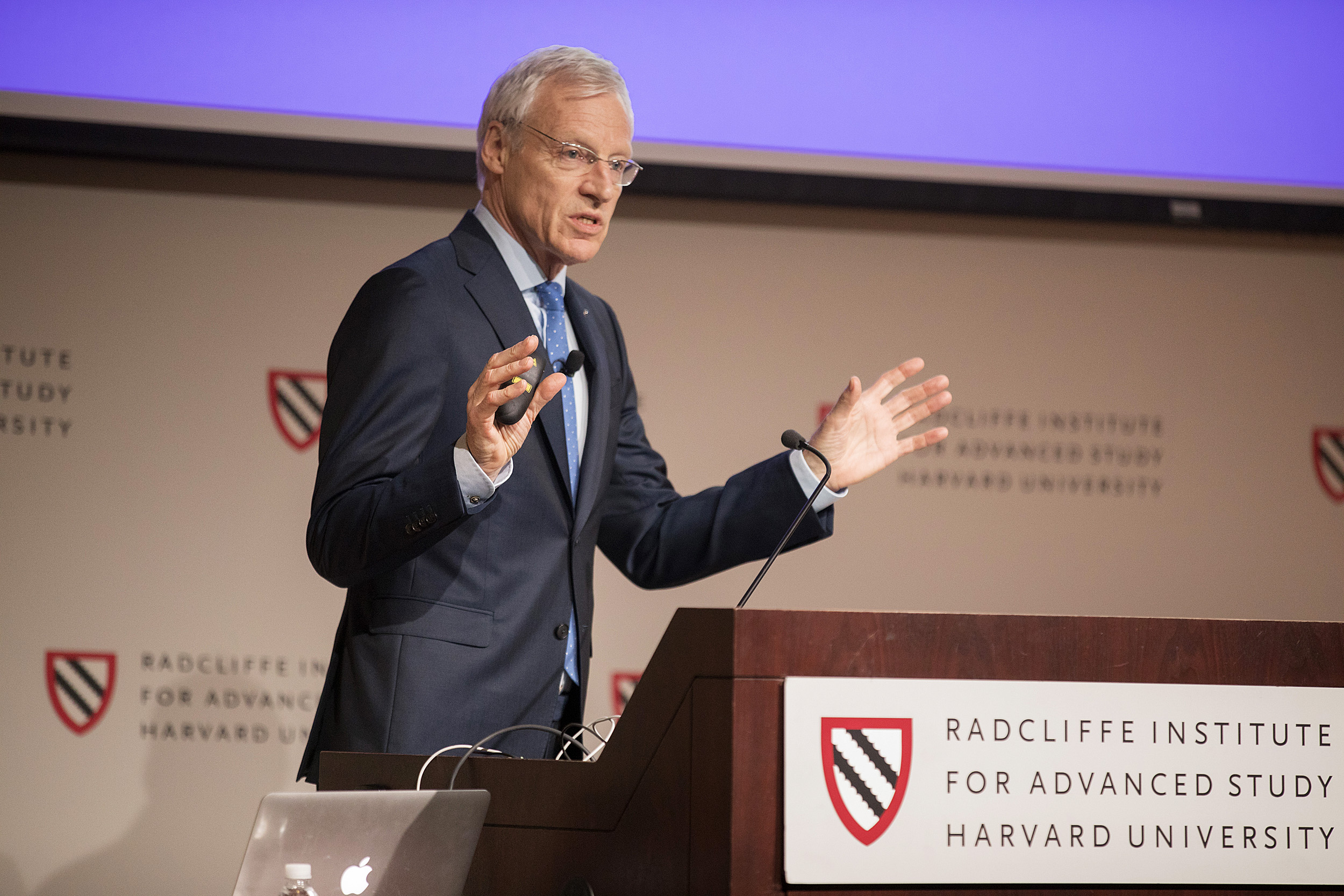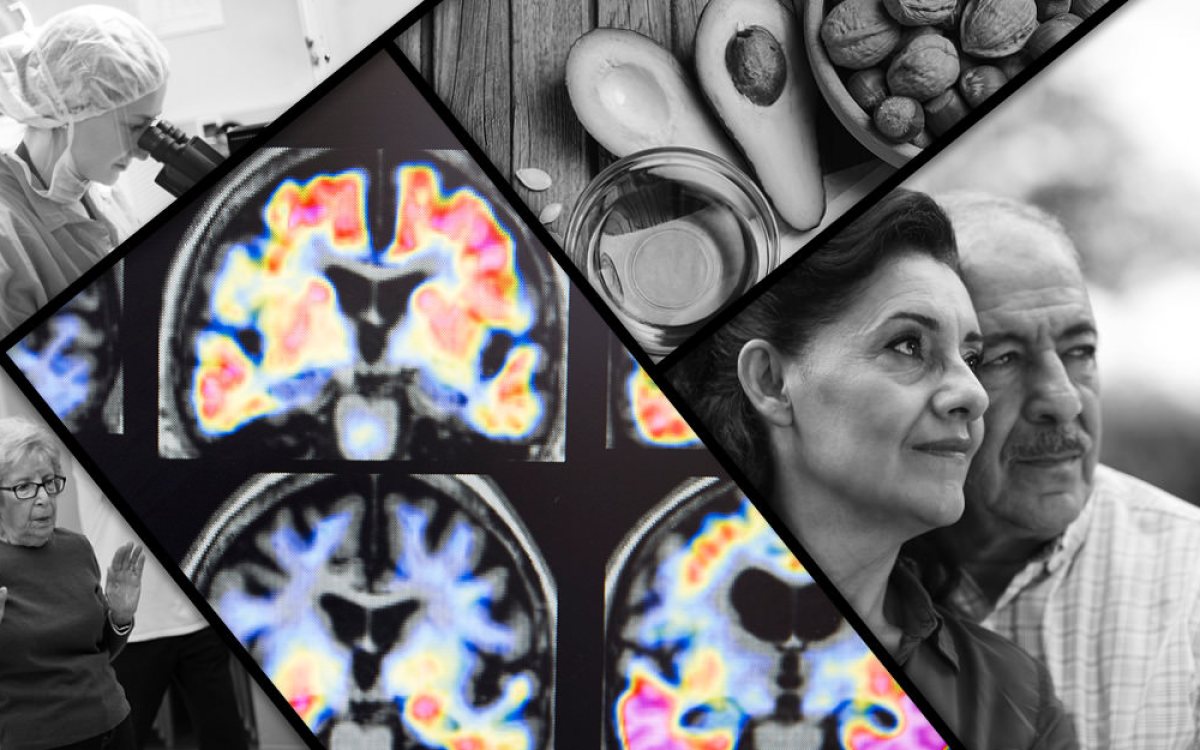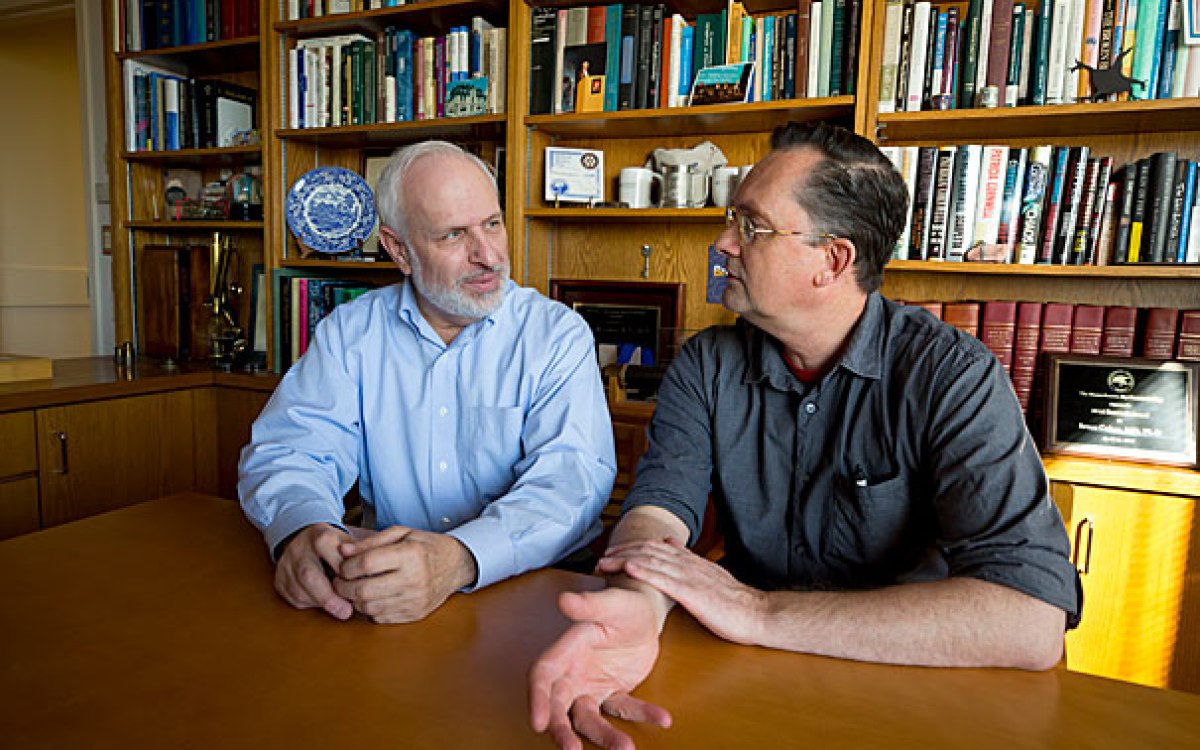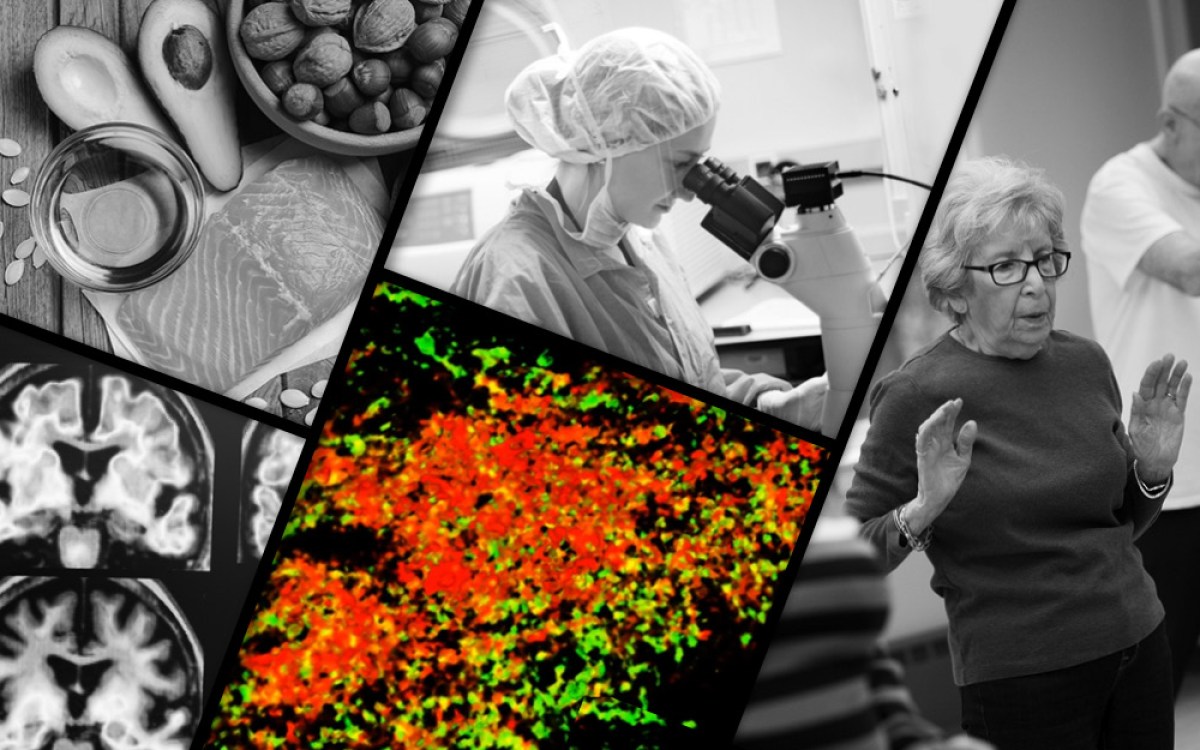
At a Radcliffe talk about the dementia epidemic, Professor Albert Hofman said most Alzheimer’s cases are likely related to non-genetic causes, which would explain the decreased incidence in recent years.
Kris Snibbe/Harvard Staff Photographer
Progress and challenge on Alzheimer’s
Healthy diets and exercise have helped, but longer lives also mean more cases, expert says
A Harvard epidemiologist offered some good news amid the doom and gloom that generally surrounds discussions of Alzheimer’s disease. Its incidence — the number of people diagnosed annually — has fallen substantially in recent years.
Albert Hofman, chair of the Harvard T.H. Chan School of Public Health’s epidemiology department, said that several studies have confirmed a 20 percent decline in incidence from 1990 to 2010, measured decade over decade. That positive is masked by a continuing rise in the overall number of cases, due to the fact that people continue to live longer and so the number of elderly continues to rise.
Much recent Alzheimer’s research has focused on genetic factors — some 30 genes have been implicated so far — but Hofman said those genes have been shown to account for less than a quarter of the cases. Further, he said that if the disease had largely genetic origins, the observed decline in incidence would be even more mysterious, since human genes don’t change quickly enough to account for the drop seen over just two decades.
Hofman, who has led large-cohort studies including the Alzheimer Cohorts Consortium and the Rotterdam Study, said he believes that most Alzheimer’s cases are due to non-genetic factors, which include trauma, such as concussions; endocrine factors relating to hormones; inflammatory factors; and vascular factors, relating to blood flow and blood vessel health.
Of these, Hofman said vascular factors appear to be most important. He described a scenario where poor blood vessel health and the buildup of deposits in the arteries over many years constrict blood flow to the brain. Ultimately, he said, that kills nerve cells and sparks the body’s response, resulting in the plaques and tangles that characterize Alzheimer’s.
If that’s the case, he said, the decline in incidence is easier to explain. Changes in lifestyle, reduced smoking, and the use of new medicines like statins to fight heart attack, diabetes, stroke, and high blood pressure are likely also improving brain health. That would also mean, he said, that continued improvement in lifestyles — eating healthier and exercising regularly throughout life — will continue to bring down Alzheimer’s rates.
Hofman, the Stephen B. Kay Family Professor of Public Health and Clinical Epidemiology at the Harvard Chan School, spoke Monday evening at the Radcliffe Institute for Advanced Study’s Knafel Center. His talk, “The Alzheimer Enigma: The Causes of the Dementia Epidemic,” was part of the institute’s epidemics science lecture series and was introduced by Janet Rich-Edwards, co-director of the Radcliffe Institute’s Science Program and associate professor of epidemiology at the Harvard Chan School and of medicine at Harvard Medical School.

For those fortunate enough to live into their 90s, a growing likelihood for more people around the globe, there is a staggering 1-in-2 chance of contracting Alzheimer’s disease.
Kris Snibbe/Harvard Staff Photographer
“[Alzheimer’s disease] affects so many of us. It affects us personally, it affects our families,” Rich-Edwards said. “It’s very big [as a] public concern.”
The prevalence of Alzheimer’s is a dark spot in what is a largely positive picture of life expectancy in recent centuries. Over the last roughly 200 years, average life expectancy has risen from 35 to as high as 90 in Japan and Spain today. Hofman called that increase “unbelievable” and said it’s a societal triumph.
But it has also led to an increase in the number of cases of Alzheimer’s. The disease risk increases until, by the time one is 95, there’s a 50 percent chance of developing it. While that increased risk is strongly tied to aging, it is not happening simply because of aging, Hofman said. Though aging increases the risk for Alzheimer’s and other conditions associated with aging, developing them is not predetermined. Each condition should be fought according to its causes and characteristics, he said.
“When you see a pattern like this, a strong increase with age, the very natural question … to ask yourself is, ‘Why is this? Why is there such an increase? Why is there this Alzheimer’s or dementia epidemic?’” Hofman said. “I’m afraid I can’t give you the answer… But I can tell you I know why it is not… It is not because of aging.”
If Alzheimer’s is largely due to vascular causes, the good news is that it’s likely that adopting healthier lifestyles, such as improved diets and regular exercise, will make an impact. The bad news — at least for those who are older — is that because the effects accumulate over time, a later start brings fewer benefits.
“If you want to protect your brain later on, start very early,” Hofman said.








